Kaira Samuel
BlendedNet: A Blended Wing Body Aircraft Dataset and Surrogate Model for Aerodynamic Predictions
Sep 10, 2025
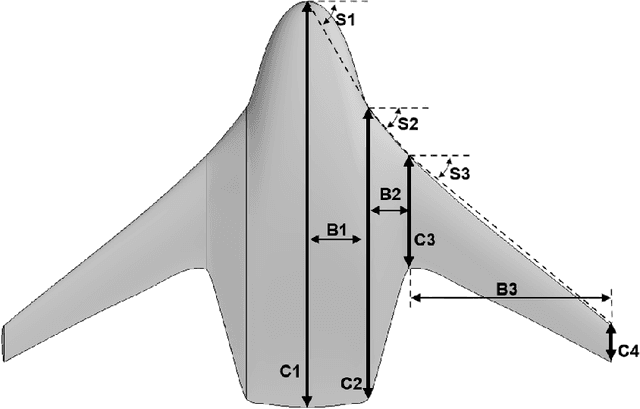
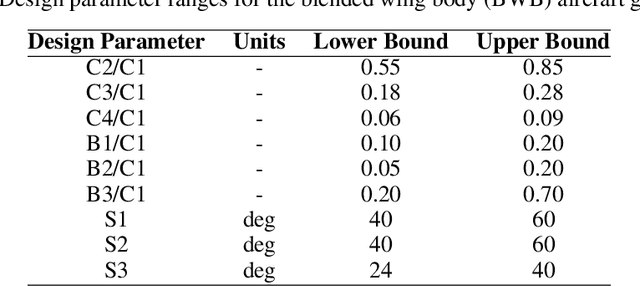

Abstract:BlendedNet is a publicly available aerodynamic dataset of 999 blended wing body (BWB) geometries. Each geometry is simulated across about nine flight conditions, yielding 8830 converged RANS cases with the Spalart-Allmaras model and 9 to 14 million cells per case. The dataset is generated by sampling geometric design parameters and flight conditions, and includes detailed pointwise surface quantities needed to study lift and drag. We also introduce an end-to-end surrogate framework for pointwise aerodynamic prediction. The pipeline first uses a permutation-invariant PointNet regressor to predict geometric parameters from sampled surface point clouds, then conditions a Feature-wise Linear Modulation (FiLM) network on the predicted parameters and flight conditions to predict pointwise coefficients Cp, Cfx, and Cfz. Experiments show low errors in surface predictions across diverse BWBs. BlendedNet addresses data scarcity for unconventional configurations and enables research on data-driven surrogate modeling for aerodynamic design.
AI Enabled Maneuver Identification via the Maneuver Identification Challenge
Nov 28, 2022



Abstract:Artificial intelligence (AI) has enormous potential to improve Air Force pilot training by providing actionable feedback to pilot trainees on the quality of their maneuvers and enabling instructor-less flying familiarization for early-stage trainees in low-cost simulators. Historically, AI challenges consisting of data, problem descriptions, and example code have been critical to fueling AI breakthroughs. The Department of the Air Force-Massachusetts Institute of Technology AI Accelerator (DAF-MIT AI Accelerator) developed such an AI challenge using real-world Air Force flight simulator data. The Maneuver ID challenge assembled thousands of virtual reality simulator flight recordings collected by actual Air Force student pilots at Pilot Training Next (PTN). This dataset has been publicly released at Maneuver-ID.mit.edu and represents the first of its kind public release of USAF flight training data. Using this dataset, we have applied a variety of AI methods to separate "good" vs "bad" simulator data and categorize and characterize maneuvers. These data, algorithms, and software are being released as baselines of model performance for others to build upon to enable the AI ecosystem for flight simulator training.
Developing a Series of AI Challenges for the United States Department of the Air Force
Jul 14, 2022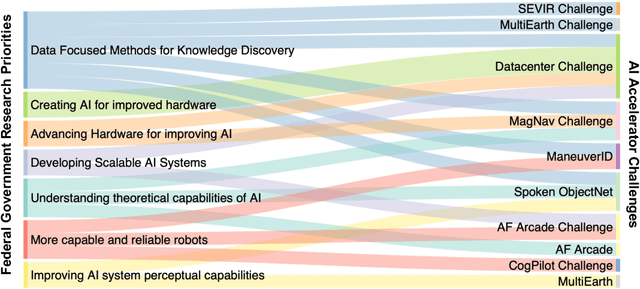
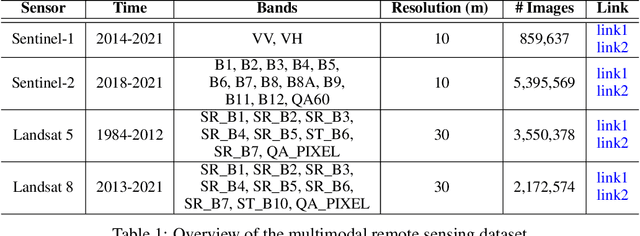


Abstract:Through a series of federal initiatives and orders, the U.S. Government has been making a concerted effort to ensure American leadership in AI. These broad strategy documents have influenced organizations such as the United States Department of the Air Force (DAF). The DAF-MIT AI Accelerator is an initiative between the DAF and MIT to bridge the gap between AI researchers and DAF mission requirements. Several projects supported by the DAF-MIT AI Accelerator are developing public challenge problems that address numerous Federal AI research priorities. These challenges target priorities by making large, AI-ready datasets publicly available, incentivizing open-source solutions, and creating a demand signal for dual use technologies that can stimulate further research. In this article, we describe these public challenges being developed and how their application contributes to scientific advances.
Maneuver Identification Challenge
Aug 25, 2021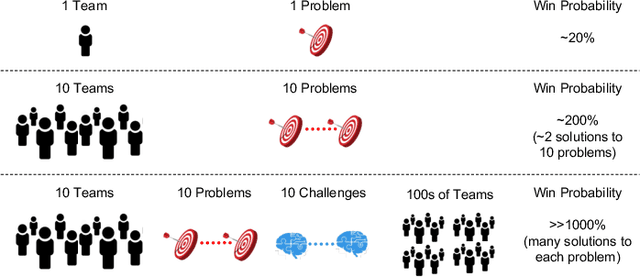
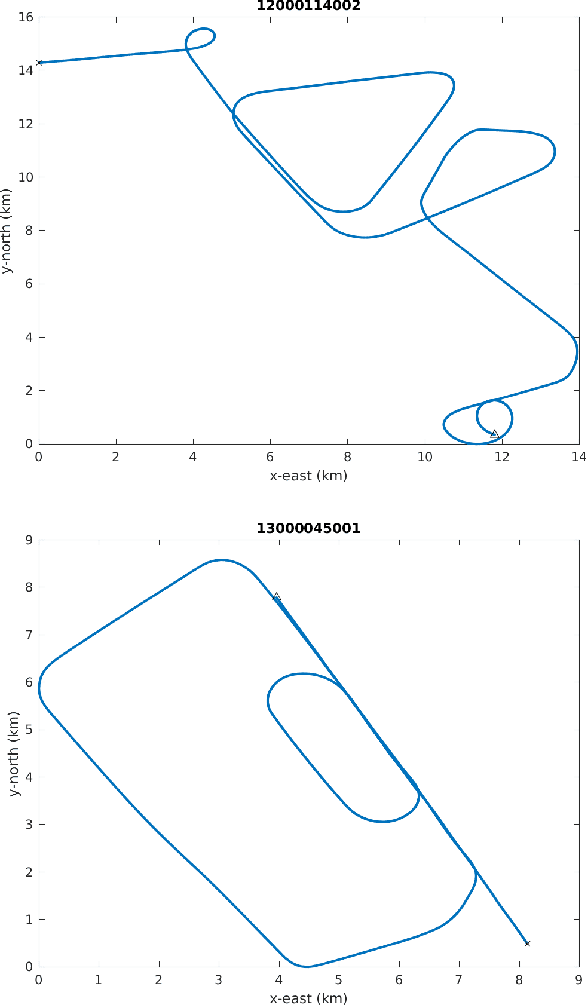
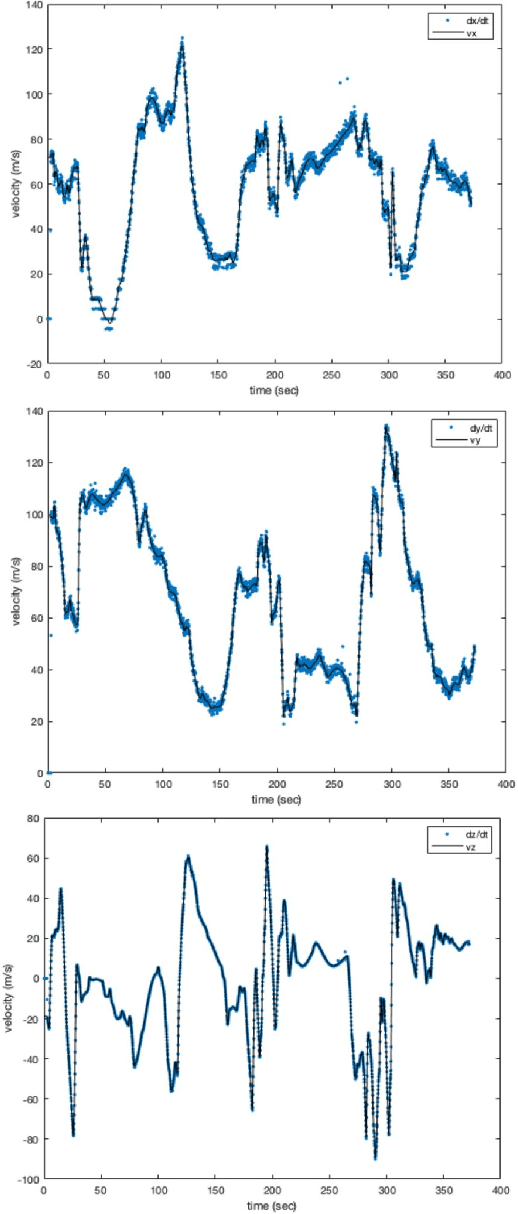
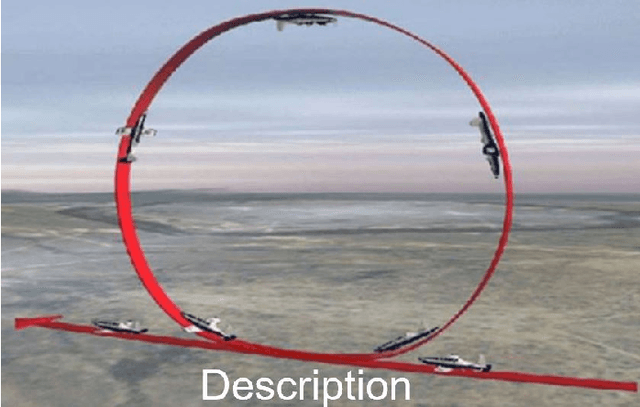
Abstract:AI algorithms that identify maneuvers from trajectory data could play an important role in improving flight safety and pilot training. AI challenges allow diverse teams to work together to solve hard problems and are an effective tool for developing AI solutions. AI challenges are also a key driver of AI computational requirements. The Maneuver Identification Challenge hosted at maneuver-id.mit.edu provides thousands of trajectories collected from pilots practicing in flight simulators, descriptions of maneuvers, and examples of these maneuvers performed by experienced pilots. Each trajectory consists of positions, velocities, and aircraft orientations normalized to a common coordinate system. Construction of the data set required significant data architecture to transform flight simulator logs into AI ready data, which included using a supercomputer for deduplication and data conditioning. There are three proposed challenges. The first challenge is separating physically plausible (good) trajectories from unfeasible (bad) trajectories. Human labeled good and bad trajectories are provided to aid in this task. Subsequent challenges are to label trajectories with their intended maneuvers and to assess the quality of those maneuvers.
 Add to Chrome
Add to Chrome Add to Firefox
Add to Firefox Add to Edge
Add to Edge